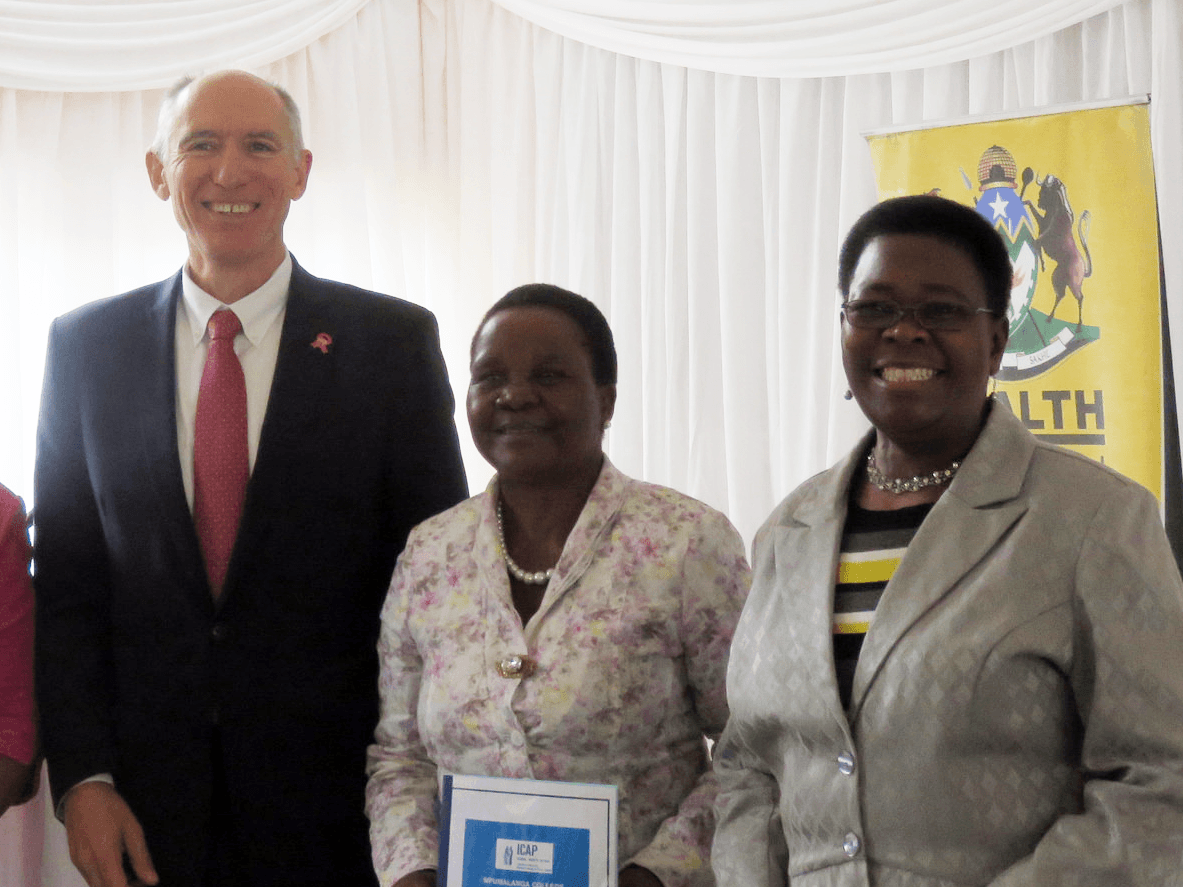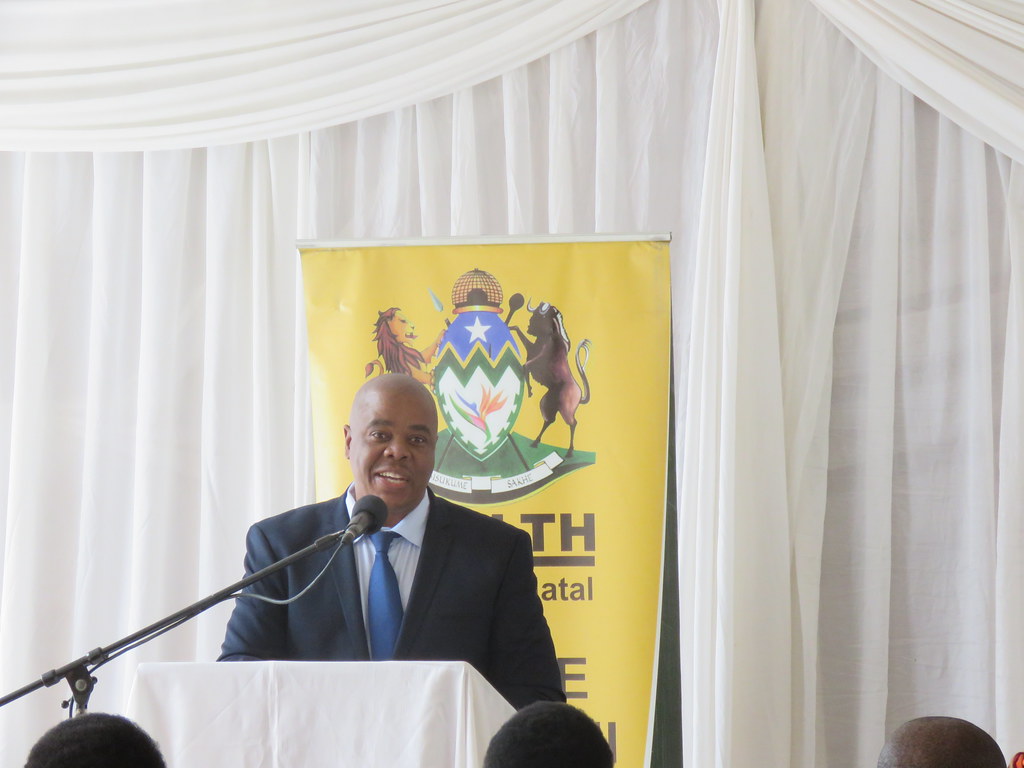ICAP’s Global Nurse Capacity Building Program (GNCBP) recently held dissemination meetings for its projects in South Africa and Ethiopia. These events, attended by ministry of health (MOH) officials, U.S. government representatives, nursing and midwifery associations, and nursing school educators and students, were the culmination of each country’s participation in the Nursing Education Partnership Initiative (NEPI), a multi-country, multi-year effort to develop a competency-based educational approach to ensure that nursing and midwifery graduates are fit for practice. The GNCBP is a PEPFAR-funded initiative through the Health Resources Service Administration (HRSA).
In most African countries, nurses provide 60% to 80% of health services. However, outdated curricula, limited educational resources, and few opportunities for academic growth of educators have left nursing education languishing for years. With efforts to achieve HIV epidemic control and the United Nations Sustainable Development Goals depending heavily on these frontline health care providers, countries affected by the HIVcrisis must make investment in nursing and midwifery education a priority.
“In most regions of Africa, the main causes of mortality remain issues that can be effectively addressed by a well-trained, well-equipped, and well-supported nurse,” explained ICAP’s senior director of implementation and principal investigator for the GNCBP, Susan Michaels-Strasser, PhD, MPH, MSc, RN, FAAN. “While nurses have always taken on responsibilities outside of their scope of practice, due to the sheer lack of other providers in both rural and urban areas, nurses and midwives now routinely provide antiretroviral therapy, prevention of mother-to-child transmission services, and early infant diagnosis for HIV. Nurses’ engagement in the provision of HIV treatment is an important contributor to epidemic control of HIV.”
Since its launch in 2011, the GNCBP has expanded educators’ and students’ access to basic learning materials and state-of-the-art simulation centers, and strengthened clinical practice through programs of preceptorship and mentorship. NEPI’s aim, as a sub-project of the GNCBP, is to align national nursing education, policy, and regulation to ensure that educational programs produce workforce-ready graduates who can deliver high-quality care and meet the challenges of their local contexts. Throughout, the process is led and owned by stakeholders at the local and national levels to ensure sustainability and long-term impact.
“Through this groundbreaking initiative, ICAP has gained remarkable experience and expertise in developing human resources for health, and we plan to take the lessons we’ve learned forward as we continue to help countries around the world respond to the HIVepidemic,” Strasser said.
A full report of NEPI accomplishments from 2012-2016 is available on ICAP’s website.
South Africa NEPI End of Project Event
Download the South Africa NEPI report here.
With the largest number of people on antiretroviral therapy (ART) in the world, South Africa needs all hands on deck to increase access to HIV care and treatment. To this end, with NEPI support, nurse educators are now being trained in Nurse Initiated and Managed Antiretroviral Therapy (NIMART), and PEPFAR funding has allowed ICAP to work closely with the MOH and Chief Nursing Officer Dr. Nonhlanhla Mkhanya to enhance education at three nursing colleges. These efforts—which include equipping the colleges with skills labs, computer labs, libraries, and extensive competency-based curriculum reform—have led to the submission of new curricula to the South Africa nursing council, which, once approved, will enable nursing students to pursue advanced degrees and specialize in priority health areas. Such a level of education had not previously been available to nursing college students, despite the fact that nursing colleges contribute 80% of South Africa’s nursing workforce.
“Investment in high-quality training for frontline nurses is just as important as university-based educational programs, which for too many years were only available to a minority of the population,” Strasser commented.
The South Africa event included discussion on the new competency-based curricula, which have infused key principles in HIV care and treatment throughout the program, as well as a tour of the Prince Mshiyeni School of Nursing’s state-of-the-art clinical simulation laboratory, renovated library, and computer lab. Dignitaries present for the end-of-project celebration included Dr. Gail Andrews, trained nurse and COO of the National Department of Health, Dr. Steve Smith, U.S. Health Attaché to South Africa, and Dr. Sandile Buthelezi, then country director for ICAP in South Africa. The U.S. Mission in South Africa published an article about the completion of the curriculum phase and the opening of newly refurbished nursing facilities.
Click on the image above to view photos from the celebrations in South Africa and Ethiopia
Ethiopia NEPI End of Project Event
Download the Ethiopia NEPI report here.
In Ethiopia, ICAP has led two projects under the GNCBP: the NEPI project, with three nursing education institutions; and the General Nursing project, in close collaboration with the Ethiopian Federal Ministry of Health (FMOH), the Ethiopian Nurses Association, and the Ethiopian Midwives Association. As in South Africa, the work in Ethiopia emphasized strengthening the quality of nursing education and equipping leaders for the advancement of nursing and midwifery. One unique feature of the Ethiopia project was increasing student access to rural practice through a rural clinical rotation as part of basic training.
The closing event for GNCBP in Ethiopia showcased two projects funded through PEPFAR and HRSA, with an introduction from the country director for ICAP in Ethiopia, Dr. Zenebe Melaku. FMOH Director of Human Resource Development Dr. Getachew Tollera and CDC Deputy Country Director for Ethiopia Mr. Steven Becknell shared personal experiences of the power of nursing and the importance of continued support for the profession. Dr. Strasser gave the keynote address, emphasizing the importance of continuing to strengthen nursing education to reflect the critical role of nurses and midwives in frontline, lifesaving care.
“I encourage everyone to learn about and get involved with the NursingNow campaign, which is a global effort to raise the profile of nursing, make it more central to health policy, and enable nurses to realize their fullest potential as health care providers,” Strasser said. “Educated, equipped, and empowered nurses and midwives are critical to any strategy that aims to improve population health.”
For more information about the GNCBP, visit ICAP online.









